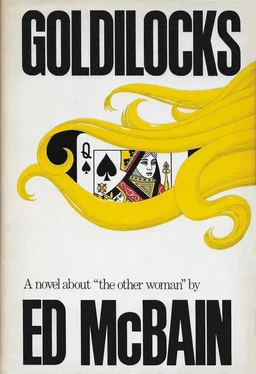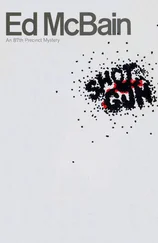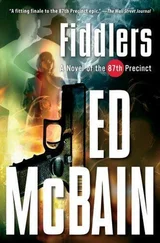I once told her a long story about this North Vietnamese pilot who was flying a Russian-made airplane painted gray. He was possibly the best pilot the North Vietnamese had, but when it was rumored that the Americans might be putting women pilots into their warplanes and sending them up against him, he absolutely refused to fly any more combat missions. His gray Russian-made airplane was grounded for the rest of the war, and whenever American pilots flew over it, they pointed it out to each other.
“And do you know what they called it, Aggie?”
“I don’t know. What did they call it?”
“The Pale Chauvinist MIG.”
“Very funny, ha-ha.”
She took her role as a woman seriously. Whenever I suggested to her that perhaps she’d begun this affair with me only because she was restless, she told me not to cheapen what we shared, and then immediately said, “Of course , I’m restless. You’d be restless, too, if you had nothing to do but enjoy yourself all day long!”
She told me now of the play she’d been rehearsing with the Whisper Key Players, an amateur dramatics group. She was having difficulty with the director. At rehearsal this morning, he’d shrieked at her to please , for the love of God , speak up ! She was hoarse with shouting by that point; she glared at him across the rows of empty seats and advised him to go buy a hearing aid. The rest of the cast began laughing, and the director said, “Cute, Aggie, very cute,” and stormed out of the theater. She felt awful about it now, and wanted to know what I thought she should do. The man simply did not come back. He walked out of the theater and did not return. Should she call him to apologize? The play had been in rehearsal for three weeks, it was scheduled to open this Saturday night — would I come to the opening?
I told her I didn’t see how I possibly could; what plausible reason could I give Susan for wanting to see a play done by an amateur group? Aggie laughed and said, “You mean The Plough and the Stars isn’t your favorite play in the entire world?” Her laughter was a bit forced, I couldn’t at first understand why. She’d never taken the group seriously, and her role in the play was a minor one. We had, in fact, joked about her finally accepting the part.
“I play a prostitute,” she’d said. “Do you think that’s typecasting?”
“Why’d you take it?”
“Nancy kept bugging me. Besides, I’ll get to show a lot of leg and garter,” she’d said, and winked.
But now she was silent, her eyes brooding, her mouth set. I asked her what was wrong, and she told me again what I’d heard at least a dozen times before. The thrust of her argument (it was really a plea) was that I did not value her highly enough. It was Susan I cared about, Susan who rated my concern — what plausible reason could I give Susan for wanting to see a play done by a bunch of amateurs, right?
“The hell with Susan,” she said, “what about me ? What plausible reason can you give me for not coming to see a play I’m in?”
“I didn’t know the play was that important to you.”
“It isn’t. Why didn’t you tell her last night?”
“What?”
“When I spoke to you on the phone this morning—”
“Oh, I see, this goes all the way back to this morning.”
“Yes, all the way back. You said—”
“I know what I said.”
“You said you’d almost told her last night. Why almost , Matt?”
“Because the phone rang and it was—”
“If it hadn’t been the phone...”
“It was the phone. It was, in fact—”
“Matt, you’ve been on the verge of telling her for the past month now. Each time, something stops you. The phone rings, the cat pees on the kitchen floor, it’s always — now what the hell’s so funny, would you mind telling me?”
“The cat peeing on the kitchen floor.”
“I don’t find any of this funny, I’m sorry. I’m beginning to think you enjoy having a wife and a whore you can fuck every Wednesday!”
“This is Monday.”
“Matt, this isn’t funny. If you don’t want to tell Susan about us, I wish you’d—”
“I do want to tell her.”
“Then why haven’t you already... oh the hell with it!” she said, and pushed herself off the bed, and stalked angrily across the room, her bare feet slapping against the tiled floor. I looked at the clock. The minute hand visibly lurched another minute past the hour, startling me. The clock was ticking furiously, the afternoon was sliding downhill. I wanted to settle this with her, I loved her too much to leave her in an agitated state. But I wanted to get back to the mainland before Ehrenberg left for the day, and I was also — I admitted this to myself with a faint pang — afraid that Gerald Hemmings would walk into his house and find me naked with his naked wife. I went to Aggie where she was standing at the window, her arms crossed over her waist, her hands cupping opposite elbows. I took her in my arms.
“Aggie, I don’t know why we’re fighting.”
“I think you know why.”
“Tell me.”
“For a simple reason. You don’t love me. That’s why we’re fighting.”
“I love you.”
“Get dressed,” she said. “It’s late, Matt.”
I dressed silently. She watched from the window as I buttoned my shirt. Then she said, “I won’t ask you again, Matt. You’ll tell her when you want to. If you want to.”
“I’ll tell her tonight.”
“Sure,” she said, and smiled wanly. The smile frightened me more than anything she’d said. I had the feeling that something was about to end without warning. “A long time ago, I asked you if you were sure,” she said. “That first time in the motel. Do you remember?”
“Yes. And I told you I was.”
“Be sure this time, too, Matt.”
“Are you sure?”
“Yes, darling,” she said, and looked suddenly exhausted. I pulled her to me and held her very tight.
“You’d better go,” she said. “It’s very late.”
“I’ll tell her tonight.”
“Don’t promise.”
“I promise.”
We kissed. I moved my face back from hers and looked at her again. She seemed about to speak, and hesitated, and then at last said, “Every time you leave me to go back to her, I think it’ll be forever. I’m always surprised when you’re here the next time. I’m even surprised when you call again.”
“I love you, Aggie.”
“Do you?”
She smiled again. The smile suddenly appeared and faded at once. Her pale gray eyes searched my face. I kissed her once more and then turned away and started for the door. In the hallway outside, the vertical window had become a column of blood.
The second-floor corridor was long and narrow, constructed of cinderblock painted a yellowish beige. An overhead water pipe ran arrow-straight down one side of the corridor, and an overhead duct hung from the ceiling on the opposite side. The corridor was lighted artificially, the plastic-covered ceiling fixtures spaced regularly along its length between the exposed water pipe and the duct. A water cooler bisected the corridor on the right-hand side. There were open doors on that same wall, casting a greenish light into the otherwise mustard gloom.
Ehrenberg had met me ten minutes ago on the first floor of the building, and then walked me around to a flight of steps that led upstairs to the holding cells. A jailer let us onto the second floor, and then disappeared into his office to answer a ringing telephone. The door at the far end of the corridor was made of metal; I could make that out even from this distance. A small rectangular glass panel was set into the door at eye level. The metal plate surrounding the keyway was painted a bright red. It seemed the only patch of color in the corridor. There was a sense here of stone and steel, an architecture of necessity. This was a jail. It looked like a jail, even though I had not yet seen a cell.
Читать дальше












